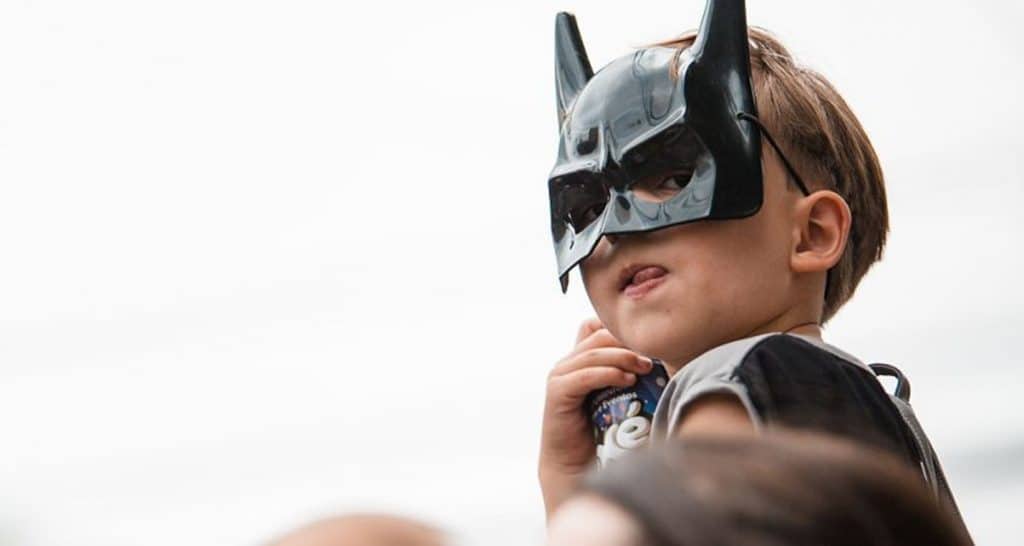
In the fictional universe of DC Comics, Batman was born the night that 10-year-old Bruce Wayne witnessed the brutal murder of his parents. The unification of the two characters occurred when Bruce Wayne lost both his parents and his childhood.
One night, Thomas and Martha Wayne, along with their son, went to watch a classic movie. Afterwards, while they were walking through Park Row, the family were mugged at gunpoint. In order to protect the family, the father stepped in front of the gunman and was shot dead. When the wife started screaming for help, the gunman violently snatched her pearls and mercilessly shot her dead as well. There and then, the poor child was left trembling in shock in a cold alley, after having witnessed the cold-blooded murder of his parents.
Orphaned Bruce was raised by his butler Alfred, who eventually became his primary care-giver. Bruce, later on in his life, travelled the world to initiate the training in order to flourish and become Batman.
What is interesting is that Batman has no superhero abilities whatsoever, unlike Superman, The Flash, Green Lantern and Spiderman amongst others. He is just an ordinary man. However, he has succeeded in fighting evil and saving Gotham City from villains time and time again.
Now that most of you readers know the origin of how Bruce Wayne went on to become the mighty Batman, from a mere, defenseless human, I am curious to discover your very own story. Your story may be tragic, traumatic and isolating, but remember that strength comes in knowing that you are not alone. Other people have gone through pain and heartbreak that might echo yours. Look at Batman – he is an alter ego that has empowered Bruce Wayne to cope with the traumatic loss of his parents. Maybe without even realizing it, you may have created your very own superhero to help you navigate the world and make sense of it.
You might be fighting villains that are not visible to the naked eye. Developing an inner Batman/Batwoman may support you as a child. Maintaining these coping strategies as an adult, after having undergone proper healing, could also prove to be therapeutic and provide you with sustainable moral support. When going through the healing process, you will progress through the stages of recovery and will acquire the necessary resources to be able to cope in life. Just remember that everyone deals with trauma in different ways.

Here are different ways that children react to emotional and psychological trauma and ways how you can help them as a parent or caregiver:
- Regression – Many children sometimes tend to return to an earlier stage where they felt safer. Younger children may wet the bed or want a bottle; older children may fear being alone. As a parent or caregiver, try to adopt an understanding, patient, and comforting stance. Bruce Wayne had Alfred who was patient and supportive during his shock/grieving process. Alfred, without knowing, was offering a secure base to the child.
- Thinking the event is their fault – There were instances where the young Bruce Wayne thought that it was his fault that his parents had died. Children tend to think that if something goes wrong, it must be their fault. As a parent and caregiver, make sure to support your child to help them understand that they did not cause the event.
- Sleep difficulties – Remember when Bruce used to have all those nightmares of Bats attacking him? Some children have difficulty falling asleep; others wake up frequently or have troubling dreams. When children are feeling anxious or not safe, give the child a stuffed animal, a soft blanket, or a flashlight to take to bed. As their caregiver, try spending extra time together in the evening, doing quiet activities, playing or reading.
- Feeling helpless – Being active in the family can help a child to not feel helpless. Help them be active and connect with other family members.
- Don’t take the trauma symptoms personally – Your child may become angry, irritable, withdrawn, or emotionally distant. Remember that this is a result of the trauma and may not have anything to do with you or your relationship. Be patient.
- Communicate openly – To help a child recover from trauma, it’s important to communicate openly. Let them know that it’s normal to feel scared or upset. Your child may also look to you for cues on how they should respond to trauma, so let them see how you are dealing with your symptoms in a positive way.






